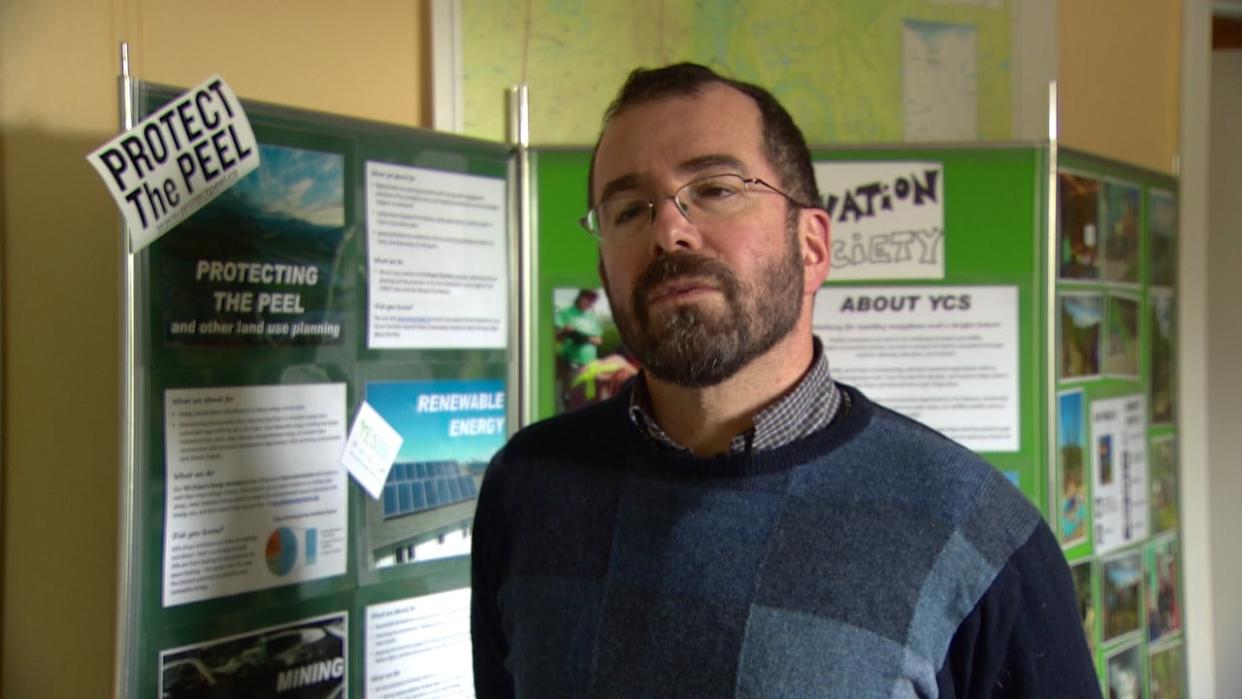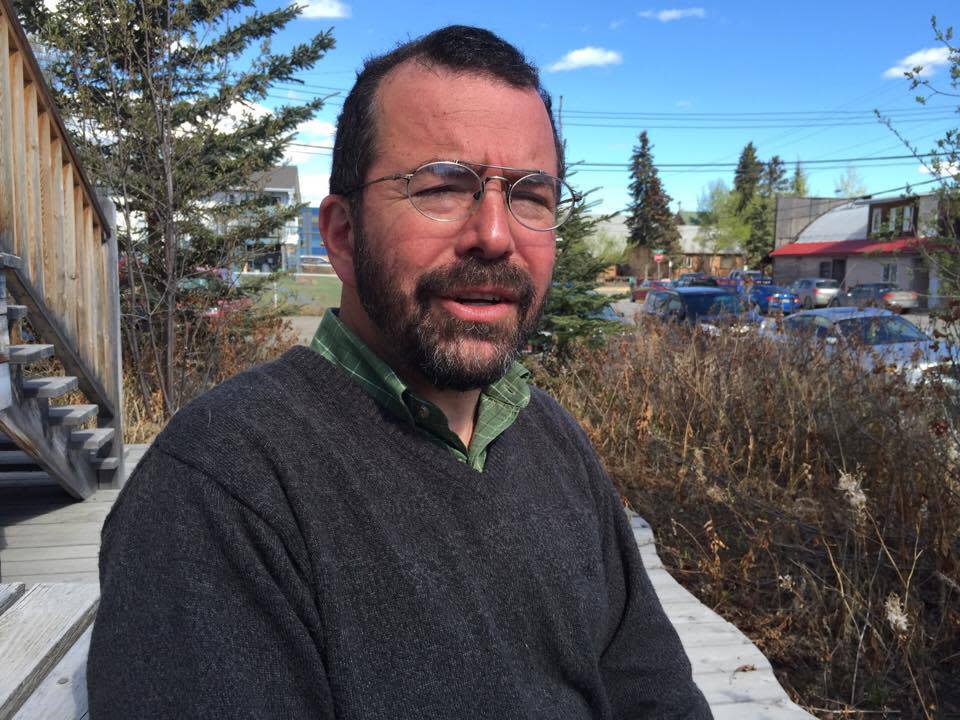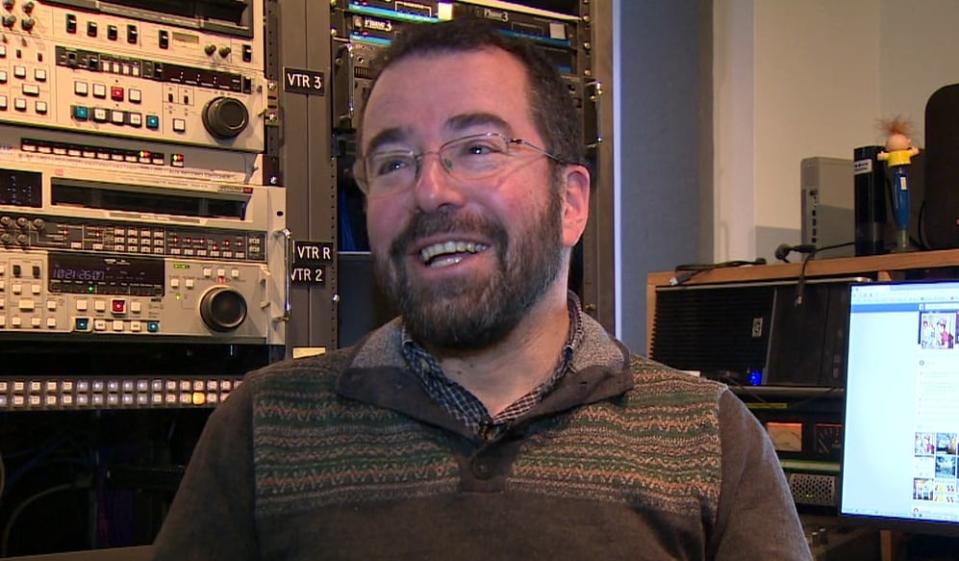Q&A: Lewis Rifkind reflects on his long career of environmental advocacy in Yukon

Lewis Rifkind, the mining coordinator at the Yukon Conservation Society (YCS), is retiring after two decades with the organization.
Rifkind has been a strong voice in the environmental movement in Yukon, advocating, among other things, for better oversight of decommissioned mines.
He was also part of a chorus of voices that pushed back against oil and gas extraction in the territory, and organized against the development of a copper mine in Carmacks.
Rifkind spoke to CBC North's Leonard Linklater about the highs and lows of his career, and where life will take him next. He's part of that conversation.
The following text has been edited for clarity and length.
What brought you to the Yukon in the first place?
I went through engineering at the University of Alberta many decades ago and I had a summer job up in Mayo with Yukon Energy, rebuilding the Mayo Lake storage dam. And it was just for four months, but I loved it so much.
After graduation, I spent a few years in Vancouver working for the federal government and didn't really enjoy it. And then I quit… and I came up, and for one glorious year I just hung out in the Yukon, enjoyed every minute of it, and realized this is where I want to live.
I wouldn't exactly have called myself an environmentalist back then, but I just started taking on environmental jobs and roles... ended up at what was then Raven Recycling, now Raven ReCentre, slinging bottles in the bottle depot. Moved up from there to doing the education at Raven, and then gradually transitioned over to YCS.
At first I did the energy portfolio, dealing with a lot of the oil and gas proposals up on the Eagle Plains area. And they were chased off, thank goodness. Then I moved into the mining file which has been my burden for the last 10 to 12 years.
How did it feel to be the watchdog over mining?
Really positive, in a way. I mean, YCS is not against mining — we just want it done right, in appropriate areas and with the best available techniques and technology.
In some aspects, it's been kind of gratifying to see how even the mining companies, as well as the regulators, various levels of government have influenced or installed rather progressive policies, or have dealt with bigger issues surrounding mining, such as land use planning.
I'm sure everyone's familiar with the Peel watershed. I mean that was an amazing way to address some of the mining issues that plague that watershed.
But we're also seeing other positive things. For example, the new mineral legislation. YCS did not initiate any of that, that's coming out of the final agreements [with First Nations]. But we feel that we've contributed some watchdog viewpoints, some modern perspective. We brought the environmental voice to the table so that it is included as part of these ongoing Improvements to mining in the Yukon.
As you say, things have shifted, from the Yukon government making all of the decisions to more of a partnership with First Nations. How do you view that, as land claims are implemented?
The more local control that can be given over resource development, the better. People who live in the areas that are being developed usually know what's best for the land. I mean, it's a bit of a general statement, but in the past Ottawa was the one that approved a lot of the mines - the Faro mines being the best and the worst example.
Nowadays it's very unlikely that the whole Faro approach would ever get approved by a First Nation government. The Yukon government on the other hand, I'm not too sure if they would approve a massive mining project or not, and that is actually one of the disappointments.
Over the past decade, we still don't seem to have learned from some of the mistakes like Faro. I mean, we look at the Wolverine mine. We look at the Minto mine - bankrupt, taxpayers on the hook, environmental mess.
You know, you'd think we'd have learned. But you constantly have to push for decent mining approaches, decent reclamation plans and enough financial security so taxpayers don't have to pay to clean up the mess. We've always been calling for that. And I hate to say I told you so to the government, but we told you so.
Do you think that will change anytime soon?
When people, voters and politicians, start to realize that for every dollar the Yukon spends on mine clean up and reclamation is a dollar less for anything else, whether it's schools, hospitals, policing, lower taxes — I think, you know that realization is starting to hit home, but it's also the realization that mining isn't the be all and end all for the land.

Lewis Rifkind says that his work on environmental campaigns and cases with other organizations and First Nations governments were some of the most rewarding parts of his career. (Dave Croft/CBC)
One of the ways to address this is through land use planning.
It sort of limits or restricts where mineral or resource extraction can happen, and it sort of provides certainty both for local communities, First Nation governments, Yukon government and for the mining industry. Once we've all agreed on the level playing field, everybody's job gets a lot easier.
Because, you know, in areas where we don't have land use planning, we're basically sort of screaming about a lot of environmental issues that land use planning can address.
And once you've got that out of the way, then you can get into the nitty-gritty about what is the mine closure plan, how much security, all that sort of stuff. At the moment we're just doing that as an afterthought, when really that should be the first thing we're thinking about when we start discussing a new mine.
What have been the most rewarding parts of your career?
A real high point — it wasn't just me, it was YCS, and a whole bunch of NGO's — was basically chasing out the oil and gas industry. We don't have an oil and gas industry in the Yukon and that is fantastic. We've all seen what's happened in northern B.C., northern Alberta.
Having the Carmacks copper project get rejected. Basically the water board did not like it, and while YCS was but a small contributor when we intervened on that, that was also very satisfying.
Dealing with the whole Peel watershed case was also very rewarding, though it was a nail biter. Nobody likes going to the Supreme Court of Canada, and don't even get me started on how expensive it was.
It wasn't just me, it was all of YCS, it was a whole bunch of NGO's and First Nation governments. I was just a very small cog in a very big machine that effectively brought home the Peel plan that we have today, which is ensuring a lot of environmentally sensitive areas are protected.
What were the most challenging parts of your career?
Watching the the mines go bankrupt! And everybody acting surprised and saying 'Oh, we didn't see this happening, and by the way, we don't have enough money to clean it up, so we're going to have to go to the taxpayers again.'
It happens time and time again and everybody acts surprised... it's sort of like something out of Black Mirror, or The Twilight Zone when those sort of discussions happen. That's been very disappointing.
The Faro mine cleanup. It's sort of a case of two steps forward, one step back. When we first got involved, basically nothing was happening at Faro. At least now we're seeing a huge financial commitment by the federal government to clean it up. There are on site issues that need to be addressed, but at least we're starting to see some clean up happening which is very gratifying.

Lewis Rifkind says that during retirement he plans to dedicate time to his stamp collection. (CBC)
So you're walking out that door, you're retiring. What do you do from here on out?
Well, first of all, I won't be getting a paycheck, but I'll probably volunteer a few hours at YCS.
For those who don't know, I collect stamps, and I've got boxes and boxes of unsorted stamps to go through. I've also recently acquired a metal detector, so I'm going to be one of those crazy older gentlemen you see at Army Beach on Marsh Lake, going up and down looking for car keys and things like that.
I've got it all planned out.


